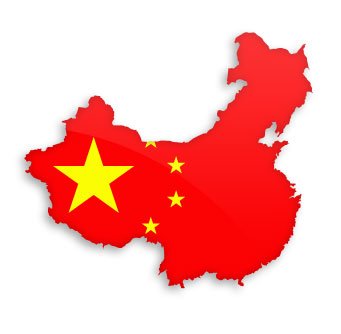The United States government seems to have a love-hate relationship with China. While U.S. military officials warn of the rising influence of China's military, President Obama makes comments about how the new TPP trade deal is necessary or "China will write the trade rules." On the other hand, China is a huge investor in the U.S. and we are its major trading partner. While the attempt to craft a nuclear power/weapons agreement with Iran has been getting all the headlines lately, the U.S. has been quietly working on an extension of a nuclear agreement with China.
Without any publicity, President Obama announced to Congress that he is going to renew a nuclear cooperation agreement with China. It is called a 123 agreement under the terms of the Atomic Energy Act of 1954. Supporters of the renewal say that it would facilitate the sales of U.S. nuclear technology to China which is on a reactor buying and building binge of late. There is a potential for dozens of reactor sales to China representing hundreds of billions of dollars.
The renewal of the agreement would let China purchase U.S. designed reactors. The deal would also allow China to purchase a facility or the technology that would permit China to reprocess spent nuclear fuel to obtain plutonium. In addition, China will be allowed to buy new reactor coolant technology. Experts claim that such technology could be modified to make Chinese submarines quieter and much more difficult to detect. The lack of publicity is an indication of the concerns that the U.S. President has about Congressionl and non-proliferation experts resistance to the renewal.
Congress is now getting involved with the renewal effort. The Senate Foreign Relations Committee will be reviewing the commercial, political and security implications of the renewal. The closed door meeting with five administration officials will permit the review of classified information about Chinese nuclear export control processes. There is a fear that nuclear technology sold to China could find its way to third parties which pose a nuclear proliferation threat.
China has been assisting the U.S. negotiations with Iran over Iran's nuclear program. Concerns have been raised by China's close relationship with Iran. In order to facilitate the negotiations with Iran and expand nuclear trade with the U.S., China has been willing to commit to much tighter controls on the movement of nuclear technology and nuclear materials than are in the original agreement that is being renewed. In the past, China has been accused of selling dangerous missile and nuclear technology to "countries of concern."
Critics of the renewal such at the Nonproliferation Policy Education Center (NPEC) have been pushing Congress to make advanced consent a requirement for allowing China to purchase the plutonium-reprocessing plant mentioned above. The NPEC also "opposes the sale of nuclear energy technologies, especially coolant pumps and high quality valves known as squib valves, with possible naval use." This particular issue has risen in importance with reports that China appears to be building a military base on disputed reefs in the South China Sea.
However worried U.S. officials are about China's military ambitions in Southern Asia and sharing sensitive nuclear technology with other countries, U.S. nuclear technology companies are very eager to export nuclear reactors and technology to China and exerting a lot of pressure on the U.S. government to help them expand nuclear trade with China. Time will tell which interest is the wiser.
